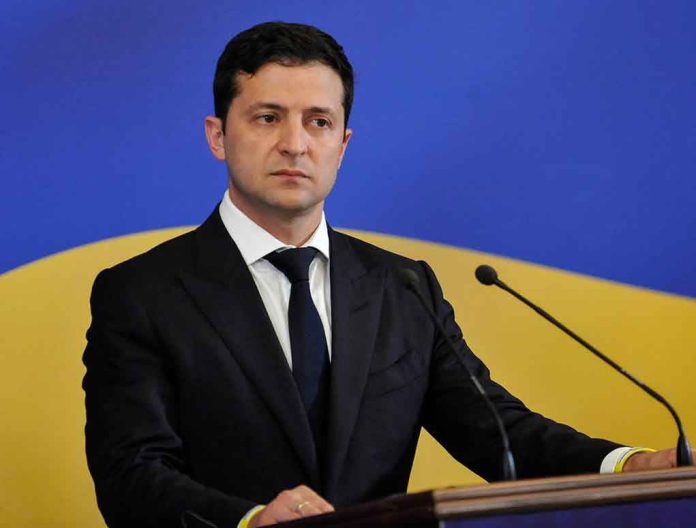
Ukrainians have taken to the streets, igniting massive protests against their own government, which seems determined to tighten its grip on anti-corruption agencies.
At a Glance
- Ukraine’s parliament passed a bill increasing control over anti-corruption agencies.
- President Zelenskyy signed the bill despite local and international criticism.
- Protests erupted in Ukraine, marking the largest against the government since 2022.
- The EU warns that this move could hinder Ukraine’s chances of joining the Union.
Ukraine’s Power Play: Control Over Anti-Corruption Agencies
Ukraine’s parliament, under the leadership of President Volodymyr Zelenskyy, has passed a bill granting the government more control over the National Anti-Corruption Bureau of Ukraine (NABU) and the Specialized Anti-Corruption Prosecutor’s Office (SAPO). These agencies were originally designed to operate independently, ensuring transparency and accountability in governance—a core demand since the Euromaidan revolution. This move has sparked widespread protests and international concern, particularly from the European Union, which has made anti-corruption reforms a central condition for Ukraine’s candidacy.
The government justifies the bill as a necessary measure to root out alleged Russian infiltration within these bodies, citing national security concerns. However, critics argue this is a thinly veiled attempt to undermine the independence of these agencies, potentially jeopardizing Ukraine’s EU accession prospects. Thousands of Ukrainians have taken to the streets, rallying against what they perceive as an erosion of democratic values and a threat to the integrity of their institutions.
Protests and Public Outcry
The passage of this controversial bill has ignited the largest public demonstrations in Ukraine since Russia’s full-scale invasion in 2022. Protesters, including anti-corruption activists, civil society groups, and ordinary citizens, are demanding a presidential veto. They fear that the increased oversight will turn NABU and SAPO into mere extensions of the government, stripping them of their power to conduct impartial investigations into high-level corruption.
Meanwhile, raids and inspections on NABU and SAPO by the Security Service of Ukraine and the Prosecutor General’s Office have heightened tensions. These actions, perceived as intimidation tactics, have further galvanized public sentiment against the government. The protests are not just about the bill itself but represent a broader discontent with perceived government overreach and the undermining of democratic institutions.
International Reactions and Consequences
The European Union has expressed serious concerns about the implications of this legislation. EU Enlargement Commissioner Marta Kos warned that such measures could derail Ukraine’s EU accession process. Anti-corruption reforms are a critical benchmark for Ukraine’s membership, and any perceived backsliding could jeopardize years of progress toward integration with the West.
Transparency International Ukraine has labeled the law a “massive setback” and a “direct threat” to Ukraine’s EU path. These criticisms highlight the delicate balance Ukraine must maintain between governance reforms and national security, a balance that seems to be tipping unfavorably in the eyes of Western partners.
Implications for Ukraine’s Future
The immediate effects of the law include concerns about the erosion of agency independence and a decline in public trust in the government’s commitment to reform. In the long term, the law could hinder Ukraine’s EU integration, weaken the rule of law, and potentially lead to increased civic activism and government crackdowns.
The situation remains tense, with civil society and international partners closely monitoring developments. The protests could either signal a renewed commitment to civic engagement or provoke a harsh government response under wartime powers. The broader impact on Ukraine’s political landscape, particularly in the legal and judicial sectors, could have significant consequences for the country’s democratic trajectory and its relations with Western allies.





